November 1974 was the month to disappear. On the 7th, Lord Lucan went missing, and a fortnight later John Stonehouse MP dis-appeared from a beach in Miami. Lucan was never found, so remains prominent in our national mythology. Nothing endures like a mystery. Stonehouse, on the other hand, was discovered in Melbourne six weeks later, living under an assumed name. His vanishing trick, so carefully rehearsed, had unravelled — partly due to Lucan, as it happened. Having been alerted to a suspicious Briton by a beady bank clerk, the Australian police thought he might be Lucan. Their first act after arresting their suspect was to lift his trouser leg to look for the missing earl’s telltale scar.
Stonehouse had long had a tendency to vanish. In a diary entry written five years earlier, Barbara Castle complained that, just when she needed him, Stonehouse had‘disappeared’. Eventually he was tracked down, and Castle told Roy Hattersley not to let him out of his sight. Stonehouse remained, she wrote in the same entry, ‘smooth and enigmatic as ever’.
There was something ghostly about him, something not-quite-there, as if he might put on a fresh identity as others might put on a new suit.
I first met him in the House of Commons, after he had returned from Australia under police escort to face trial on 21 different charges of theft, fraud and deception. As an ambitious teenager reading drama at Bristol University, I had contacted him, suggesting I write a play about him. By this time he had left the Labour party, and was identifying as a victim of the Establishment. In his resignation letter to the leader of the house, he explained that ‘the long traumas I suffered were caused by a deep disillusionment with the state of English society and the complete frustration of the ideals I have pursued in my political and business life’.
His supporters being thin on the ground, he invited me to meet him in the House of Commons. As we walked along the corridors of Westminster, he greeted passing colleagues with an ostentatiously chummy ‘Hello, Bill’ and ‘How are you, Jim?’ In return, they kept staring straight ahead and said nothing. It was like being with a ghost only I could see or hear. To them, he was the spectre at the feast, the MP who had pursued the common middle-aged fantasy of living another life in another place as someone else. And now the vanishing man had come back to haunt them.
Yesterday upon the stair,I met a man who wasn’t there.He wasn’t there again today,I wish, I wish he’d go away.
The next time I saw him was at the Old Bailey. He was conducting his own defence, cross-examining a series of bank clerks, forever referring to himself in the third person (‘and when did you first encounter Mr Stonehouse?’). Once again, this added to the impression that he wasn’t really there, or that he was there, but as someone else. His closing statement from the dock — the longest in British legal history — lasted six days.
The gist of his defence was contained in the title of the memoir he had rush-released a few weeks earlier: Death of an Idealist. If he did anything wrong, it was the result of a mental breakdown, a split personality, caused by the clash between his own lofty ideals and the moral turpitude of a sick nation. ‘This country!’, as Alan Partridge once complained, having just stubbed his toe.
In John Stonehouse, My Father, his eldest daughter, Julia, loyally embraces this offbeat defence. She won’t hear a word against her late parent, describing him successively as ‘tolerant, supportive and amusing’, ‘highly conscientious and hard working’ and ‘a hero’. If his businesses, which had shady catch-all names such as Export Promotion and Consultancy Services, and Ambulant Finance, were in a dodgy state, that was because he had been too charitable, too trusting, too keen to keep them afloat for the good of mankind. Those who took against him — journalists, the police, MPs, the Old Bailey judge — were motivated by malice. At one point she suggests that his parliamentary colleagues envied him because he was so attractive to women — and ‘jealousy all too easily turns to hate’.
The Stonehouse family endured a terrible shock. For six weeks they were grieving for him, only finding out he was alive when the Daily Mirrorphoned them with the news on Christmas Eve. But Julia barely mentions herself or her feelings at the time. Instead, she offers a clear, dispassionate and selfless chronicle of the full extent of her father’s crimes and misdemeanours, while simultaneously absolving him of all blame. The more devious his behaviour, the more she finds it so ‘completely out of character’ that it is proof of a mental breakdown, brought on by the purity of his ideals, all crushed by the moral corruption of virtually everyone else.
But has anybody ever prepared for their own mental breakdown with such diligence, such attention to detail? Copying the methods employed by the hired assassin in Frederick Forsyth’s The Day of the Jackal, Stonehouse had phoned a hospital in his constituency, saying that he wished to distribute money to young widows. Could they give him the names of married men who had recently died? He then dropped in on two of these widows, Mrs Mildoon and Mrs Markham, and with his soft-spoken, sympathetic manner wheedled enough information out of them to apply for passports and bank accounts in the names of their late husbands. ‘It’s so out of character for the John Stonehouse we knew, we can only attribute it to madness, one symptom of which is that the person does mad things,’ explains Julia, employing dizzying, Escher-like circular logic.
She charts her father’s meticulous preparations — countersigning passport photos with the forged signature of a dying colleague, siphoning all the money from the bank account he shared with his wife Barbara into the brand new accounts of Markham and Mildoon, rehearsing his ‘drowning’ on Miami beach, taking out five last-minute life insurance policies — without ever entertaining the idea that they could be proof of perfidy rather than insanity. Geoffrey Robertson, briefly engaged for his defence, was later to conclude: ‘If it were madness, there was too much method in it ever to convince the jury.’ But Julia is having none of it: ‘With that kind of support, no wonder my father decided to defend himself.’
On hearing of her husband’s arrest, Barbara flew to Australia, to be joined shortly afterwards by his pretty young secretary Sheila Buckley, with whom he had been conducting a secret affair for five years. When Barbara told him that if Sheila also flew out she would leave, Stonehouse grabbed her by the hair, flung her to the floor, and banged her head up and down, shouting: ‘What can’t you understand?’ Their son Mathew, aged 14, managed to pull him off, screaming: ‘Stop it, Dad, stop it!’ Mathew then told his mother to go into the kitchen and shut the door. When Barbara tried calling her husband’s psychiatrist, Stonehouse snatched the phone, beat her head with it, then put his hands round her throat and hit her hard against the wall. Julia provides all this damning evidence, and then declares it to be further proof of his innocence. His personality had split in two. His behaviour was ‘so out of character it was frightening’.
The jury refused to swallow it, and found him guilty. Mr Justice Eveleigh declared:
It is clear to me that self-interest has been well to the fore.You aimed to get rich quickly. You falsely accused other people of cant, hypocrisy and humbug when you must have known all the time that your defence was an embodiment of all those three.
Stonehouse was given seven years but, two heart attacks later, was out in three. He married Sheila, and they had a baby. It was almost the life he might have enjoyed in Melbourne had he never been caught. I went to dinner with them in their small flat in Queen’s Park. By then Stonehouse had followed Jeffrey Archer into writing thrillers, though without the financial rewards. Like Archer, he had a habit of looking you straight in the eye for perhaps a little too long, jutting out his chin to indicate resolution, trust and integrity.
‘John’s very serious about his novels,’ explained Sheila, who sometimes got her words muddled up. ‘He wants to write for prosperity.’ They got on well. I asked them to my cottage in Suffolk. John said they’d prefer to wait until the end of summer: ‘Sheila and I are keen blackberriers,’ he explained. In its way, Blackberrying With John Stonehouse seems as incongruous an idea as Making Cocoa For Kingsley Amis, but he seemed at peace as he searched hither and thither among the hedgerows.
The last time I saw him was quite by chance. Working on the Sunday TimesAtticus column one November, I chummed up with the poet Paul Muldoon at a launch party, and he came with me to my next port of call, an event at Stringfellows, the saucy nightclub in Covent Garden. Who should be there but Stonehouse, sipping champagne with the mullet-haired Peter Stringfellow, the two of them sandwiched between a couple of vivacious hostesses who were certainly not dressed for the cold.
Years later he would be named as having been a spy, taking money from the Czechs for passing on secrets. Julia is adamant that this accusation is also false — the sloppy invention of a dodgy defector, Josef Frolik, ‘a known liar’. She argues her case well; but whether or not it was true, Stonehouse was defenceless: ‘A miasma of suspicion and contempt fell over my father and he was doomed.’
Who knows? Perhaps he had just been disappearing into other people, trying on more characters to see if they would fit. His final disappearance came after another heart attack in 1988, at the age of 62. His last words were: ‘Sheila, tell me you love me.’
Got something to add? Join the discussion and comment below.
Get 10 issues for just $10
Subscribe to The Spectator Australia today for the next 10 magazine issues, plus full online access, for just $10.
You might disagree with half of it, but you’ll enjoy reading all of it. Try your first month for free, then just $2 a week for the remainder of your first year.

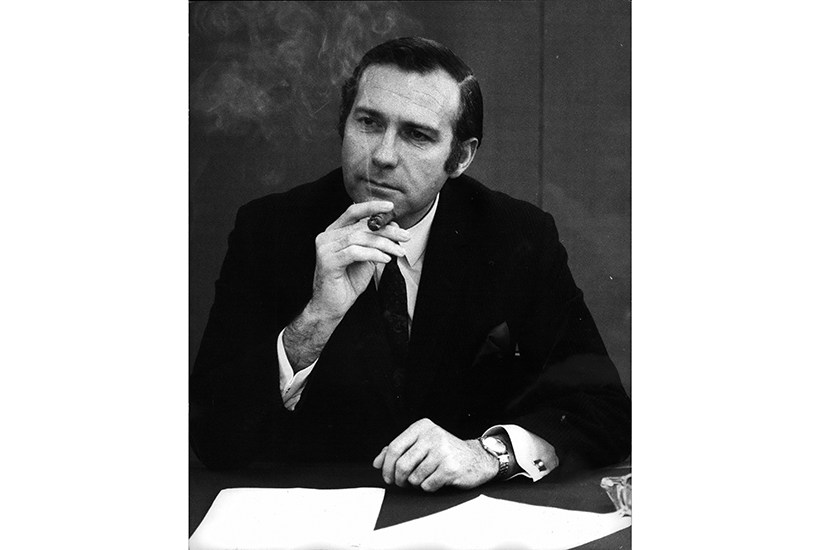
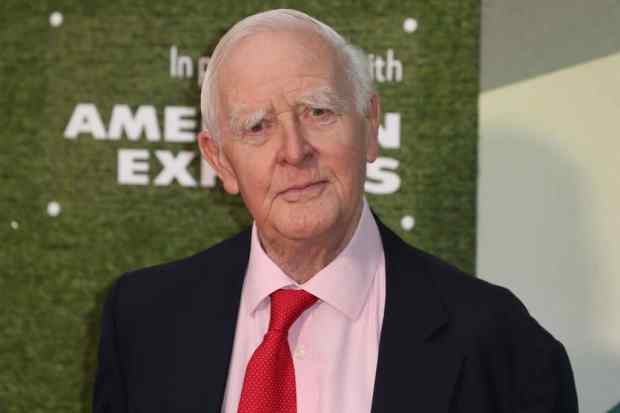
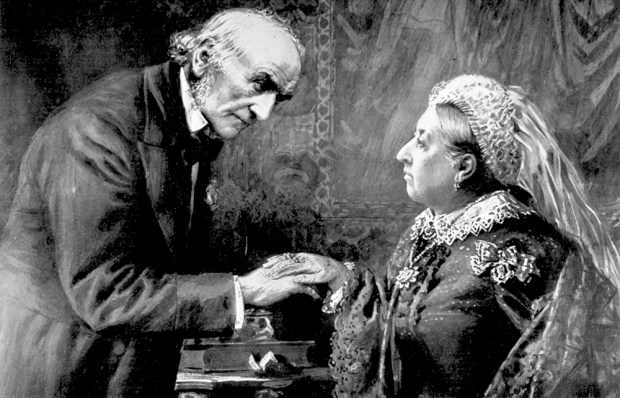
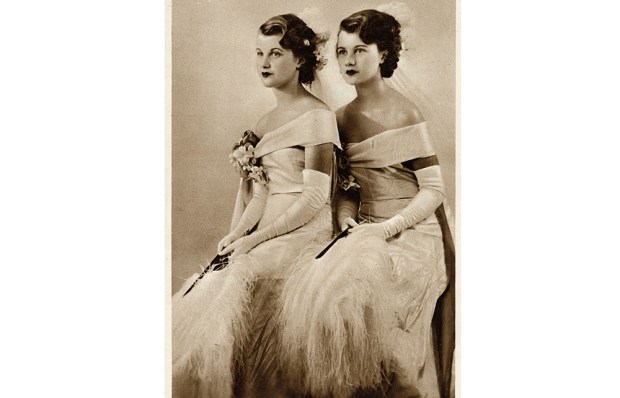

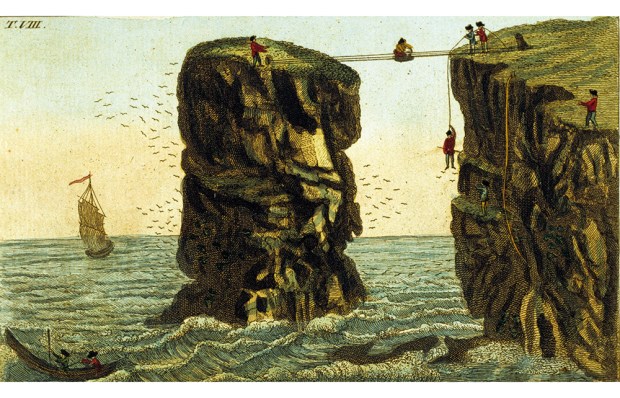
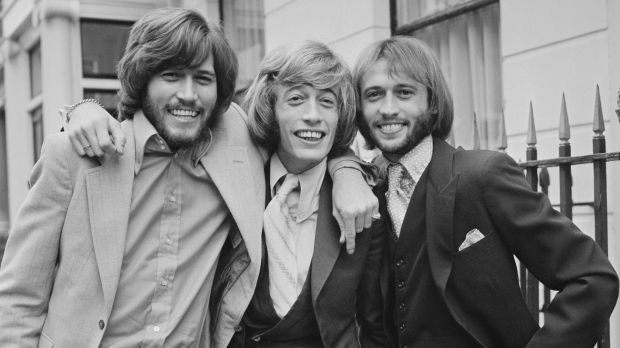






Comments
Don't miss out
Join the conversation with other Spectator Australia readers. Subscribe to leave a comment.
SUBSCRIBEAlready a subscriber? Log in